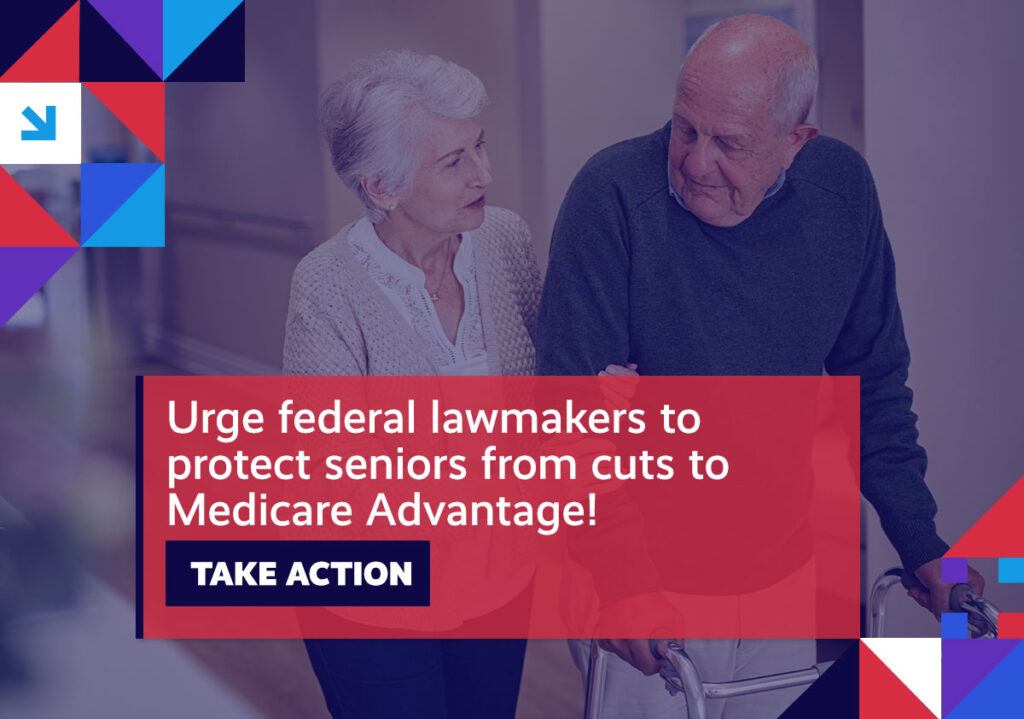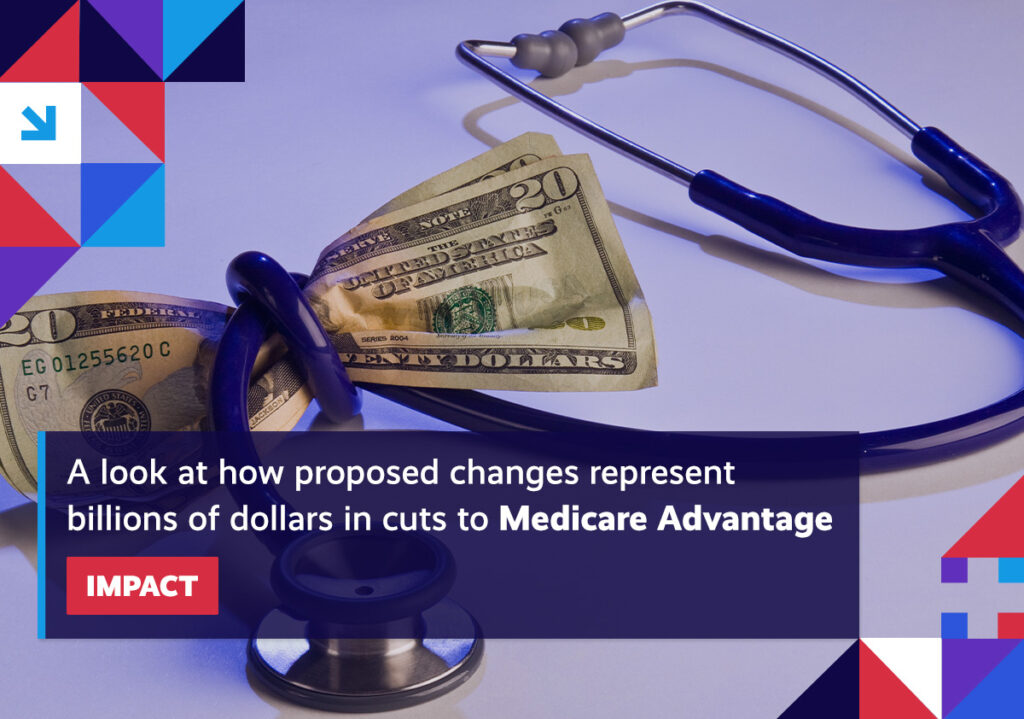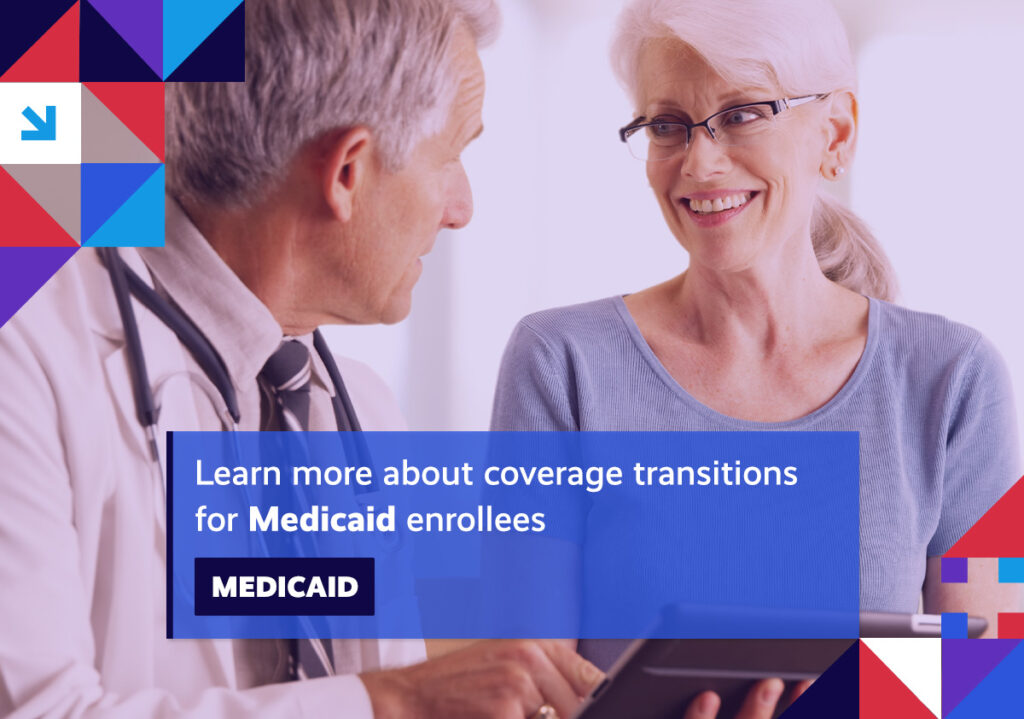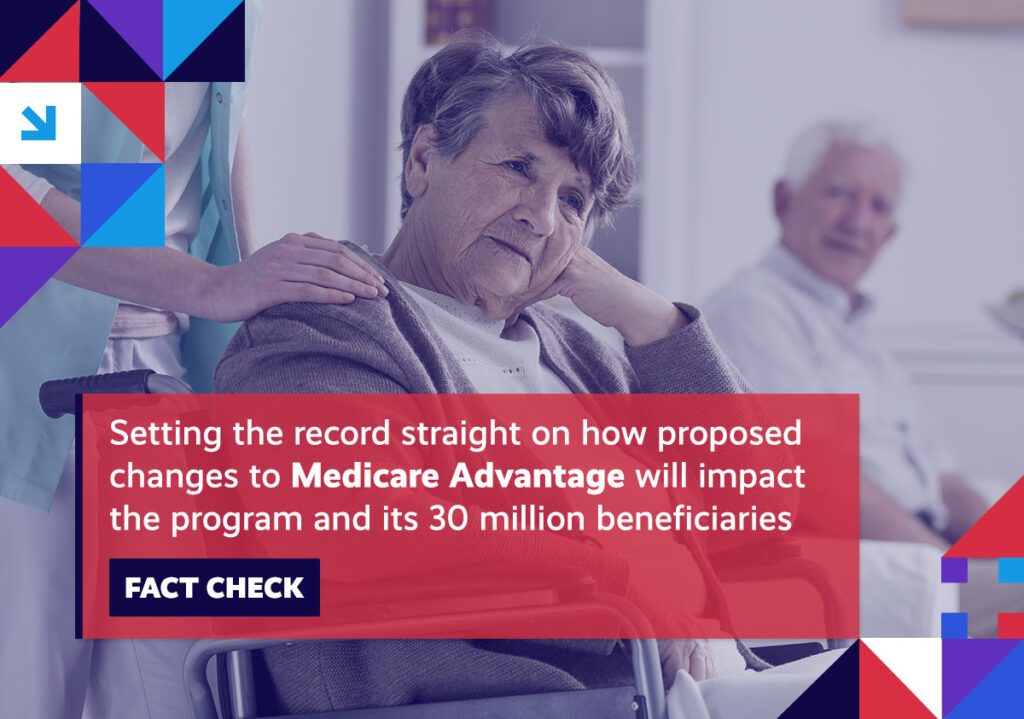A quick roundup of the issues driving the healthcare reform conversation.
Item of the Week

Spotlight
MA BENEFICIARIES Stakeholders highlight the looming threat to vulnerable Medicare Advantage beneficiaries from proposed changes to the program.
Further context: If finalized in a couple of weeks, the Centers for Medicare & Medicaid Services’ (CMS) 2024 advance notice – which lays out payment and policy changes for the Medicare Advantage (MA) program for next year – would make it much harder to treat underserved populations, such as beneficiaries who are dually eligible for Medicaid and Medicare.
What it means: In particular, CMS’ proposed changes to MA’s risk adjustment model – specifically, the elimination of more than 2,000 diagnostic codes – could disproportionately shift valuable resources away from dual-eligible beneficiaries.
Take Action: Thousands of Health Action Network advocates, like you, have already stepped up, urging lawmakers to protect the more than 30 million Americans enrolled in MA plans from the increased premiums, higher out-of-pockets costs, loss of benefits, and limited access that would all result from these proposed cuts. If you haven’t already, take action today!

MEDICAL DEBT The majority of medical debt in this country is owed to hospitals.
Quick takeaway: According to a new study, more than 15 percent of adults in the U.S. report having overdue medical debt, with nearly 73 percent of that debt being owed to hospitals.
Further context: Of those reporting overdue medical debt:
- Approximately 28 percent owed all of their debt to hospitals
- More than 26 percent have family incomes at or below 100 percent of the federal poverty level
- Nearly 61 percent said they’d been contacted by a collection agency
Additionally, adults with disabilities were more than twice as likely as those without disabilities to report medical debt.
What it means: Not only does medical debt cause financial hardship, but it can also lead to delayed or neglected care, too, which has led experts to highlight how targeting hospital billing could help address the issue.
Rx COSTS The high cost of drugs keeps many Americans from filling their prescriptions.
Quick takeaway: According to a new poll, more than one-third of people in this country (37 percent) said they’ve skipped filling a prescription because of costs.
Further context: The results of the survey only add to the well-established narrative detailing the impact that high prescription drug costs continue to have on patients and their health.
What it means: A separate analysis underscores the importance of the issue, as the median monthly price for newly approved drugs has nearly tripled over the past decade, ballooning from $2,624 in 2011 to $7,034 last year.
MEDICAID A new coalition seeks to ensure Medicaid enrollees maintain continuous healthcare coverage as the COVID public health emergency comes to an end.
Further context: In the early stages of the coronavirus public health crisis, Congress passed laws to make sure that people on Medicaid had access to healthcare coverage throughout the pandemic.
Now, with state Medicaid programs looking to unwind these COVID protections, there’s growing concern that many of the most vulnerable populations are unaware of what continuous coverage options are available to them.
What it means: With that in mind, stakeholders have come together, launching the Connecting to Coverage Coalition in an effort to minimize disruptions to care by coordinating with community leaders to get trusted, reliable information to the people transitioning off Medicaid.

Spotlight

| You can keep up with the latest by following the Health Action Network on Twitter and by liking us on Facebook. And, be sure to check us out on LinkedIn, too. As always, let us know if there’s something you’d like to see covered in a future newsletter. |
The Health Action Network includes everyday Americans—families, workers, businesses, patients, providers, neighbors, and friends. We are working together because we support market-based solutions that offer better healthcare choices and help build a stronger economy. The Health Action Network is an Elevance Health, Inc., initiative.
